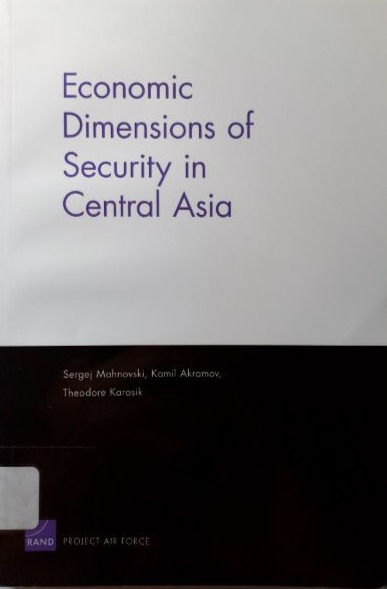Economic Dimensions Of Security In Central Asia (2007) By Sergej Mahnovski, Kamiljon T. Akramov, Theodore W. Karasik
This report assesses the economic dimensions of security in post-Soviet Central Asia and considers their implications for the role of the United States. The September 11, 2001, attacks on the United States led to the realization among policymakers that instability, failed and failing states, and economic and political underdevelopment present security concerns not just to the states that suffer directly from these problems but to the global community as a whole. In this regard, Central Asia may be at a crossroads, as demonstrated by the so-called “Tulip Revolution” in Kyrgyzstan and the unrest in Uzbekistan in 2005. However, it is unclear whether the states in the region have the institutional capacity to implement sound and lasting domestic reform and what the appropriate role is for the United States and the international community. Although some have argued that the U.S. military presence in the region could be used as a vehicle for encouraging political and economic reform, the record to date provides little grounds for optimism. In fact, Central Asia will increasingly diversify its economic and military relationships with neighbors such as Russia, China, and Iran, potentially crowding out direct U.S. influence in the region. U.S. policymakers should consider a lower-profile military presence, a sharper focus of diplomatic and economic resources on specific issues that may affect counter-terror and counter-narcotics efforts in the region, and a nuanced approach that engages alternative power centers, realizing that the principles and interests behind U.S. involvement are more enduring than any single regime is likely to be.
- Soft Cover
- 92 Pages
- In Good Condition
































